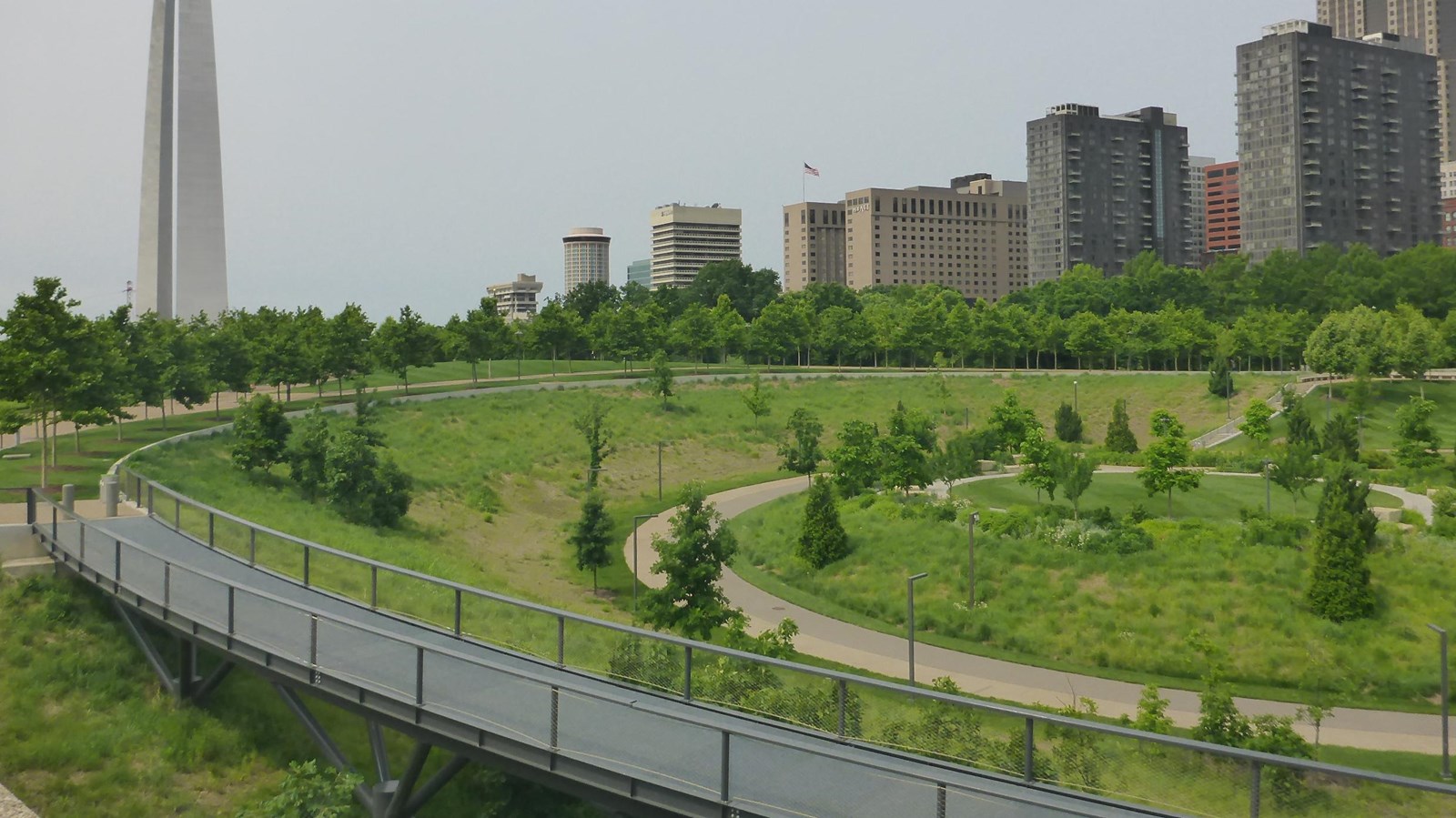Last updated: August 8, 2025
Place
Explorer Garden

NPS/ Sue Ford
Quick Facts
Location:
North part of Gateway Arch National Park
Significance:
Landscape feature
Amenities
5 listed
Pets Allowed, Public Transit, Trash/Litter Receptacles, Water - Bottle-Filling Station, Water - Drinking/Potable
The Explorer Garden was planted with the intention of creating space for native pollinators. As such, most plants are native. The goal is to have plants to support insects throughout every season of their life cycle. There is always something in bloom throughout the entire growing season, from February through October! The garden is not as highly manicured as other built landscapes on the Arch grounds. For example, dead brush is left standing all winter to provide food and shelter for pollinators instead of being immediately pruned back for aesthetics.
Until 2015, the north end of the park (where the Explorer Garden is now) was dominated by a concrete parking garage. This garage was removed as part of the CityArchRiver renovation project to remove barriers between attractions in the downtown area and to incorporate more green space. Studies had also shown that there was ample parking (more than 2,000 spots!) downtown within a five-minute walk of the Arch. The soil under the garage was heavily compacted, but our talented gardeners were able to bring nature back into the space.
There are ample walking trails in the Explorer Garden, as well as large, flat rocks to rest on.
Until 2015, the north end of the park (where the Explorer Garden is now) was dominated by a concrete parking garage. This garage was removed as part of the CityArchRiver renovation project to remove barriers between attractions in the downtown area and to incorporate more green space. Studies had also shown that there was ample parking (more than 2,000 spots!) downtown within a five-minute walk of the Arch. The soil under the garage was heavily compacted, but our talented gardeners were able to bring nature back into the space.
There are ample walking trails in the Explorer Garden, as well as large, flat rocks to rest on.
